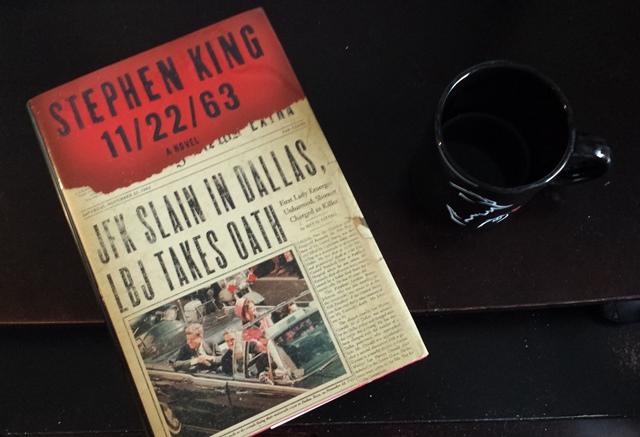Writers write. Right?
Yes.
But!
The smart writers know when to shelve a work-in-progress.
Case in point: I recently finished 11/22/63 by Stephen King.

It’s a time travel story that centers on this question: what would happen if JFK had lived? I CRUSHED ON THIS BOOK SO HARD. Here’s the thing about King: he is so versatile, and he has evolved so much as a writer. So if you tried him in the past, meaning decades ago, and he wasn’t your cup o’ tea, consider trying him again. Consider this book!
I digress. Back to my point. In the afterword, King says this: “I originally tried to write this book in 1972. I dropped the project because the research it would involve seemed far too daunting for a man who was teaching full-time. There was another reason: even nine years after the deed, the wound was still too fresh. I’m glad I waited.”
So know this, dear writers: it’s OK to shelve an idea that’s not working for whatever reason. Maybe you don’t have the necessary means to do the research. Maybe you don’t have the necessary life wisdom to write the story you’re trying to tell and you need to wait a little while longer and, you know, live. This doesn’t mean you stop writing altogether. It simply means you stop writing that particular story. Latch on to a new idea and work on it.
All that said, I’d like to offer two caveats:
1. Don’t allow a challenging story to convince you it just needs to be shelved. There’s a difference between shelving a story for a good reason and shelving a story out of fear or (gasp) laziness. Learn the difference (how these differences manifest will vary from person to person, which is why you need to get cozy with your inner self).
2. When a story isn’t working, don’t assume you must shelve it. Analyze what’s going on. Is the story not working because it needs time on the shelf? Is the story not working because the idea/concept isn’t sustainable? Is the story not working because you’re the obstacle, meaning you need to revise and/or recalculate your approach (see this blog post to understand what I mean)?
Sometimes you don’t need to shelve a story. Sometimes you need to shit-can it. It happens. No shame in having an idea that just isn’t working — and that *likely* won’t work, no matter what you do. (Getting good at recognizing these scenarios is another important skill all writers need to develop, including this writer here.)
Bottom line: Write. Know when to stop writing a particular project. Write some more.
